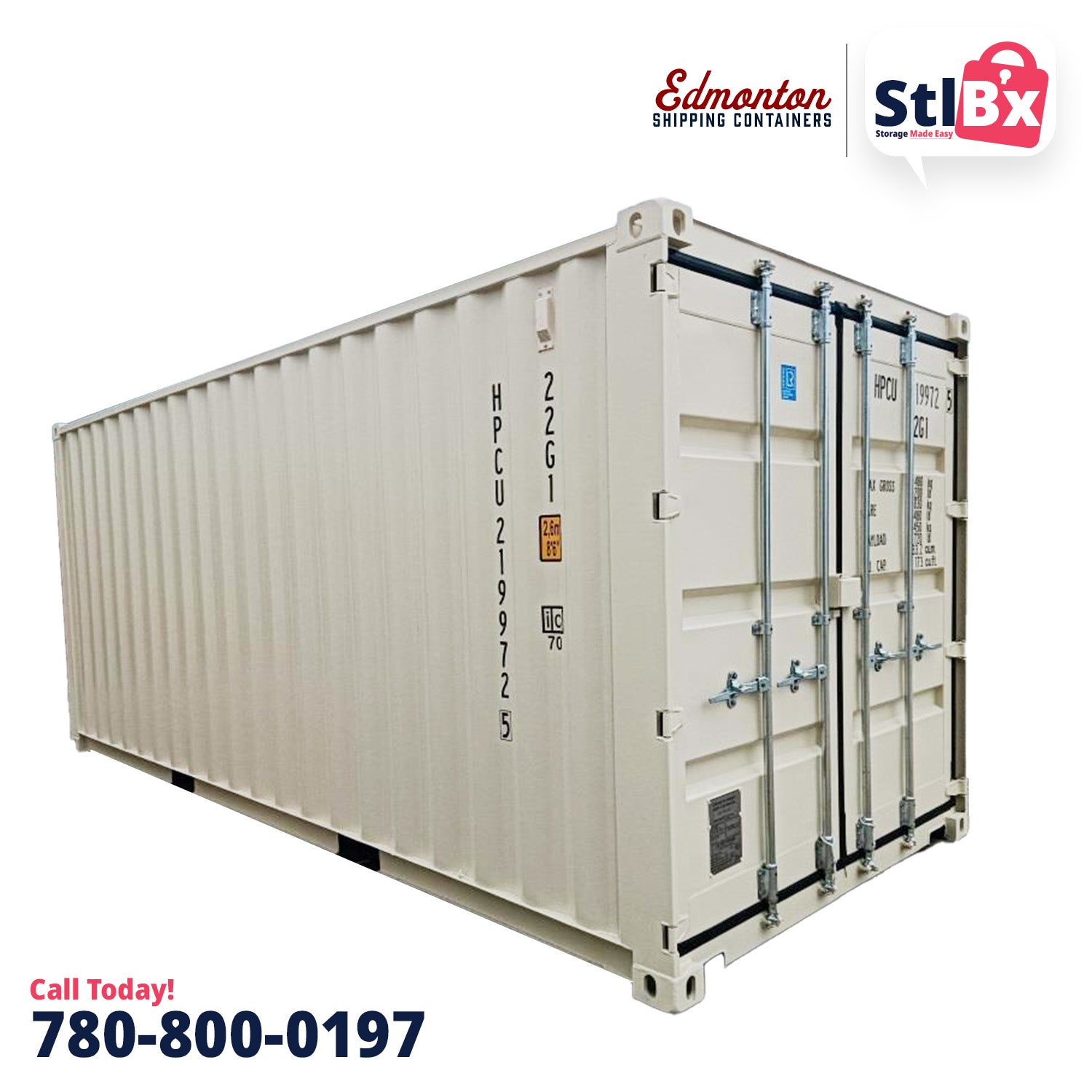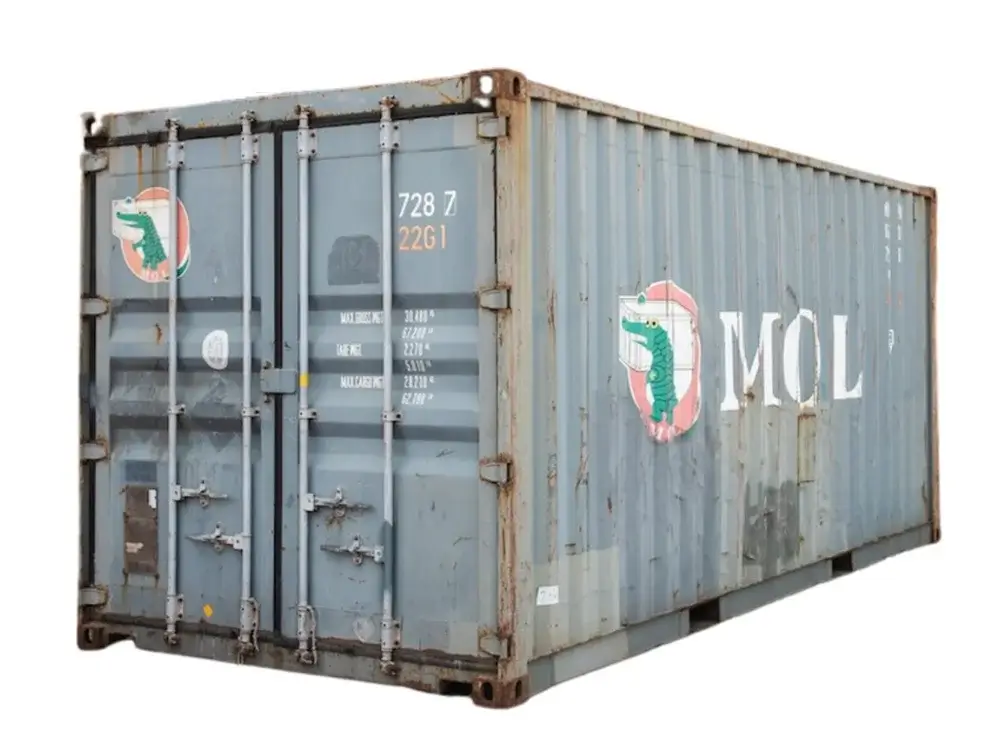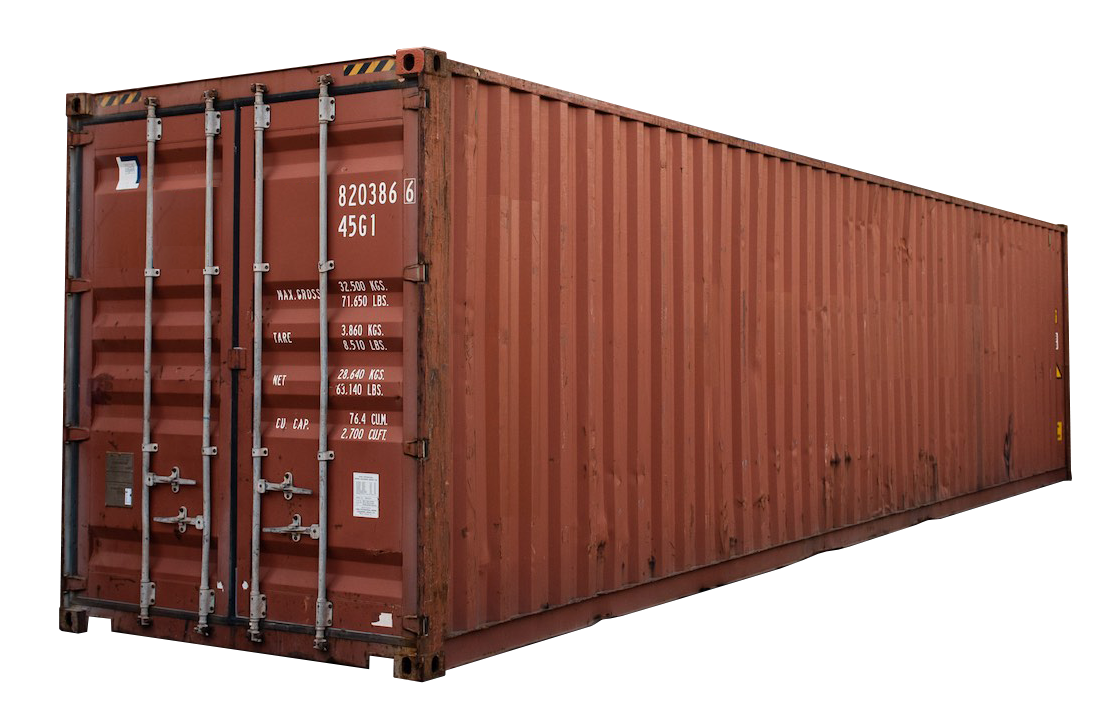Whatever You Need to Learn About Shipping Containers and Their Practical Applications
Shipping containers have evolved from mere devices for transport to functional frameworks with numerous sensible applications. Their durable style and basic sizing make them ideal for an array of usages past delivery. From ingenious housing remedies to lasting farming, their flexibility is notable. The possibilities do not end there. Exploring their various features exposes surprising insights into contemporary challenges and innovative options. What other duties could these containers play in today's world?
The Style and Framework of Shipping Containers

Internally, containers are made to make the most of room, commonly including wood or steel floor covering that can support considerable weight. Ventilation systems may be included to stop moisture build-up, which is vital for sensitive cargo. Additionally, reinforced edges enable simple handling by cranes and forklifts, facilitating smooth loading and dumping. This thoughtful style and structure add to the containers' convenience across various delivery and storage applications.
Benefits of Utilizing Shipping Containers
While several transport techniques have their benefits, the usage of shipping containers sticks out as a result of their unrivaled convenience and efficiency. Shipping containers use a standard dimension, making them easy to move and stack throughout numerous settings of transport, including ships, vehicles, and trains. This standardization lowers filling and dumping times, consequently raising overall efficiency.
Shipping containers are constructed from long lasting products, offering robust protection for goods during transportation. They are protected and weather-resistant, reducing the danger of damages from ecological aspects or theft. Furthermore, the modular style of shipping containers permits simple modification, enabling organizations to adjust them for numerous objectives, such as storage space or mobile workplaces.
Their portability and cost-effectiveness make shipping containers an eye-catching alternative for organizations looking to streamline logistics and supply chain procedures. These advantages contribute to the growing popularity of shipping containers in various industries.
Imaginative Housing Solutions With Shipping Containers
Ingenious real estate solutions have actually become an interesting application of delivery containers, leveraging their inherent staminas for domestic use. These flexible structures provide a lasting alternative to standard structure materials, usually at a portion of the cost. Designers and developers have changed containers into trendy, useful homes, accommodating varied lifestyles and preferences.

Shipping containers are ecologically pleasant, advertising recycling and lowering waste. Several tasks concentrate on energy effectiveness, including eco-friendly roof coverings and solar panels. As urbanization increases, these ingenious real estate options offer a practical reaction to real estate scarcities while cultivating an one-of-a-kind architectural visual.
Shipping Containers in Retail and Pop-Up Shops
An expanding variety of retailers are transforming to delivering containers as a dynamic solution for retail rooms and pop-up shops. These versatile frameworks use an affordable option to standard storefronts, permitting businesses to produce special, captivating environments that bring in consumers. Their modular layout enables simple transport and installation, making them suitable for short-lived or seasonal retail locations.
Merchants can tailor shipping containers to mirror their brand identification, transforming them into visually appealing stores that stand apart in crowded industries. The compact nature of containers additionally encourages effective use space, enabling for creative layouts that enhance client circulation and involvement. Shipping containers can be located in unusual places, such as city parks or uninhabited lots, increasing ease of access and foot web traffic.

As the retail landscape advances, delivering containers supply a cutting-edge and adaptable remedy that fulfills the needs of modern customers while improving the purchasing experience.
Sustainable Farming Practices Utilizing Shipping Containers
Lasting farming practices increasingly incorporate shipping containers as innovative remedies for agriculture - Shipping Containers for Sale. These container ranches use hydroponics to optimize space and source performance, supplying a cost-efficient strategy to food manufacturing. By transforming shipping containers into farming centers, farmers can attend to food protection and environmental issues at the same time
Container Farming Advantages
While traditional farming faces difficulties such as land shortage and climate modification, container farming my website provides a sensible choice that maximizes room and sources. This ingenious technique permits year-round crop manufacturing in controlled settings, decreasing reliance on weather. Container ranches use much less water than traditional farming, promoting sustainability and conservation. They can be developed in urban areas, bringing fresh produce closer to consumers and decreasing transport emissions. official site Additionally, the modular nature of delivery containers allows scalability, allowing farmers to adjust operations based upon need. Container farming likewise minimizes pesticide use by producing an enclosed ecological community, ultimately boosting food safety. As metropolitan populaces grow, container farming becomes a useful remedy to meet the boosting demand for local, lasting food sources.
Hydroponics in Containers
Hydroponics, which permits plants to grow without dirt by utilizing nutrient-rich water, grows within the confines of shipping containers, making it an ideal technique for urban farming. These containers create a regulated atmosphere that optimizes light, temperature, and moisture, enabling year-round growing. With minimal room in city locations, shipping containers supply a scalable service for growing fresh produce. Hydroponic systems within containers can include different methods, such as nutrient film strategy (NFT) and deep water culture (DWC), which make the most of yield while decreasing water usage. This ingenious technique not just boosts food safety however likewise decreases the carbon impact associated with conventional farming methods. As a result, hydroponics in containers represents a forward-thinking service for lasting metropolitan food production.
Cost-efficient Farming Solutions
As food manufacturing faces enhancing challenges as a result of climate modification and urbanization, shipping containers emerge as a cost-effective solution for farming. These flexible structures can be repurposed for various lasting farming techniques, such as hydroponics and upright farming. By making use of controlled environments within containers, farmers can enhance growth cycles and decrease resource intake, consisting of water and fertilizers. In addition, delivering containers can be purposefully placed in urban areas, reducing transportation prices and boosting access to fresh produce. Their modular nature enables scalability, making it possible for farmers to increase procedures as need grows. Additionally, repurposing containers adds to throw away reduction, aligning with eco-friendly farming campaigns. Overall, delivering containers present innovative opportunities for lasting and effective food manufacturing.
Emergency Situation and Calamity Alleviation Applications of Shipping Containers

Organizations regularly make use of shipping containers to produce mobile facilities or field medical facilities, making certain that clinical treatment reaches those in demand. In addition, they can be changed right into command centers for working with rescue procedures, therefore improving organizational effectiveness throughout dilemmas.
Moreover, containers can be modified to keep important items such as food, water, and garments, guarding materials till they are dispersed. Their flexibility enables them to be easily delivered to different places, guaranteeing that help gets here where it is most quickly required. In general, shipping containers play a crucial function in enhancing the effectiveness of calamity alleviation campaigns worldwide.
Often Asked Questions
Just How Are Shipping Containers Transported From One Area to An Additional?
Shipping containers are transferred via ships, trains, and trucks, making use of cranes for packing and discharging. This site multi-modal transportation system makes sure effective movement across land and sea, linking global supply chains and assisting in global profession.
What Is the Average Life-span of a Delivery Container?
The ordinary life-span of a delivery container generally ranges from 10 to 25 years, depending upon maintenance, usage, and environmental factors. Appropriate treatment can expand their functionality, while neglect may cause degeneration and damage.
Can Shipping Containers Be Changed for Various Uses?
Yes, delivering containers can be customized for different uses. They act as homes, workplaces, pop-up shops, and storage space units. Their adaptability permits innovative adjustments, making them suitable for a wide variety of applications.
Are Shipping Containers Eco Friendly?
Shipping containers can be ecologically friendly, as they advertise reusing and repurposing. Their longevity reduces waste, while their use in alternate housing and services decreases the demand for new materials, adding to sustainable methods.
How Do I Choose the Right Size Shipping Container?
To select the ideal dimension delivery container, one have to analyze storage requirements, think about the designated usage, and examine area accessibility - sea can for sale. Typical dimensions include 20-foot and 40-foot containers, each offering numerous storage and transport needs efficiently
Ingenious real estate services have actually emerged as an exciting application of shipping containers, leveraging their fundamental staminas for residential use. The adaptability of delivery containers allows for creative designs, from single-unit residences to complicated multi-container setups. Sustainable farming methods progressively include delivery containers as cutting-edge options for farming. Additionally, the modular nature of shipping containers allows scalability, allowing farmers to adjust procedures based on demand. Hydroponics, which enables plants to expand without dirt by using nutrient-rich water, grows within the confines of shipping containers, making it an excellent method for city agriculture.